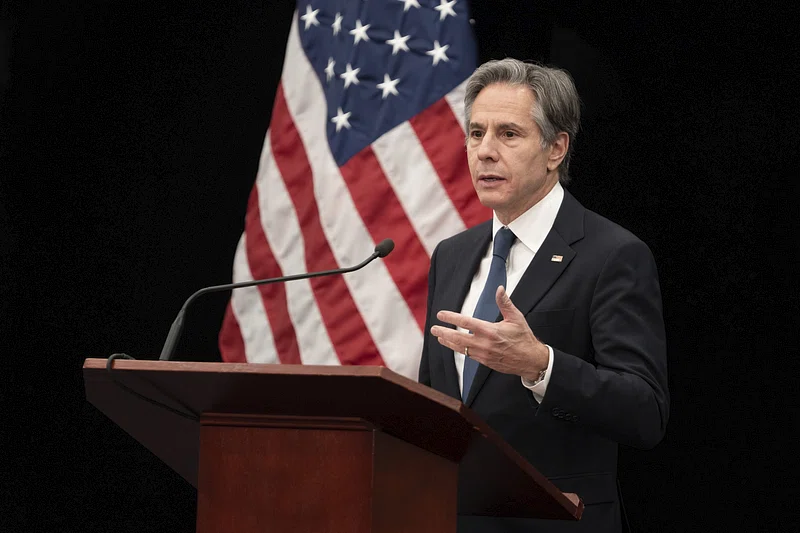U.S. Secretary of State Antony Blinken met in Beijing with Chinese President Xi Jinping where Xi emphasized the importance of the United States adopting a positive view of China’s development to foster better bilateral relations. President Xi highlighted that this perspective is a “fundamental issue” that needs addressing for the China-U.S. relationship to “truly stabilize, improve and move forward,” as stated in an official release.
This important dialogue occurs against a backdrop of heightened tensions, notably influenced by U.S. restrictions on China’s access to high-end technology and the looming possibility of a ban on the social media app TikTok, unless its ownership by the Chinese company ByteDance is transferred.
Blinken’s visit to Beijing, which included discussions on various contentious issues such as technological rivalry, the Middle East conflict, and the Russia-Ukraine war, underscores the complexity of the U.S.-China relationship.
Prior to his meeting with Chinese Foreign Minister Wang Yi, Blinken stressed the irreplaceable value of “face-to-face diplomacy” and the critical need for both nations to avoid “miscalculations” that could further strain diplomatic ties. These meetings are pivotal as both countries navigate their positions on global matters and seek ways to manage their strategic competition.
Xi envisions the United States and China as partners rather than rivals, a view rooted in the potential for mutually beneficial cooperation rather than conflict. Xi believes that a more cooperative relationship would not only stabilize the often turbulent dynamics between the two nations but also enhance global stability and prosperity.
This perspective was echoed during Xi’s interactions with U.S. officials, where he emphasized the importance of the U.S. viewing China’s development positively as a fundamental step towards improving bilateral relations.
For this partnership to materialize, several key issues need to be addressed.
Firstly, the U.S. must find a balance between competition and cooperation, focusing on areas where mutual benefits are clear, such as climate change, global health, and economic stability. The recent diplomatic engagements suggest that there is an openness on both sides to explore these opportunities, as seen during the bilateral meetings where discussions included resuming military dialogues and enhancing cooperation on environmental issues.
Managing the ideological differences between the two countries is crucial. The U.S. needs to reassure China that its actions are not aimed at undermining the Chinese government but are focused on specific areas of concern such as human rights and regional security. Likewise, China must demonstrate that it is not focused on becoming a superpower to the detriment of the U.S. or other nations. This approach could help in reducing the trust deficit and establishing a framework where both nations can engage constructively without fearing ulterior motives.
To truly transition from rivals to partners, both nations need to engage in regular, open communication to prevent misunderstandings and manage crises effectively. This includes maintaining open lines for dialogue at all levels, from military to economic forums, ensuring that both sides can address and resolve issues as they arise.
Moving towards a partnership requires a concerted effort to address mutual concerns constructively, respecting each other’s core interests and values while working together on shared global challenges.
